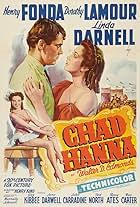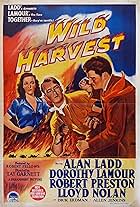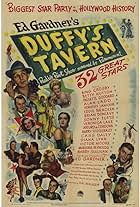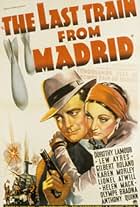NOTE IMDb
5,8/10
130
MA NOTE
Ajouter une intrigue dans votre langueAn American singer stranded in Mexico is hired by a banker to distract a Mexican matador who is making a play for the banker's wife. They hatch a scheme whereby she pretends to be a Spanish ... Tout lireAn American singer stranded in Mexico is hired by a banker to distract a Mexican matador who is making a play for the banker's wife. They hatch a scheme whereby she pretends to be a Spanish countess.An American singer stranded in Mexico is hired by a banker to distract a Mexican matador who is making a play for the banker's wife. They hatch a scheme whereby she pretends to be a Spanish countess.
- Réalisation
- Scénario
- Casting principal
Jorge Rigaud
- Boris Cassall
- (as George Rigaud)
Jean Acker
- Party Guest
- (non crédité)
Enrique Acosta
- Bullfight Spectator
- (non crédité)
Grace Albertson
- P.A.A. Passenger Service Attendant
- (non crédité)
George Anderson
- Customs Official
- (non crédité)
Sam Appel
- Man at Airport
- (non crédité)
Gordon Arnold
- Party Guest
- (non crédité)
Paulita Arvizu
- Bullfight Spectator
- (non crédité)
Don Avalier
- Headwaiter
- (non crédité)
Albert Baldo
- Bullfight Spectator
- (non crédité)
Avis à la une
Masquerade in Mexico was a musical remake of the classic comedy Midnight starring Claudette Colbert. It was made just six years after the original film and starred Paramount's other brunette superstar, Dorothy Lamour. Paramount needed a new film for Dorothy and director Mitchell Leisen, who had future plans for a musical adaptation of his original, decided to go ahead and work up a rush job for the project. The end result is a pleasant though unexceptional film most notable for Dorothy Lamour at perhaps her loveliest in glamorous and elegant costumes by Edith Head.
The story has been changed a fair bit from the original but fans of the first film will easily recognize it's origins. Lamour flies into Mexico to meet her fiancée only to learn the guy is a con artist and thief and finds he has hidden a stolen diamond in her baggage. Seeing the police at the airport searching the travelers she (not too upright herself) drops the diamond in the jacket pocket of another traveler, Patric Knowles, and scoots away but she is penniless in a foreign country. A friendly cab driver (Mikhail Rasumny) takes her around to audition to at the nightclubs, first as a dancer, then as a singer and finally, she is hired. Alas, her first night on the job she is spotted by patron Knowles, who is attending the nightclub with his soon-to-be ex-wife Ann Dvorak and her lover, bullfighting legend Arturo De Cordova. Seeing how bewitched De Cordova is with the American beauty, Knowles, knowing Lamour was the one who hid the diamond on him, decides to blackmail her into vamping De Cordova to get him out of the way and win his wife back.
As mentioned, Dorothy Lamour is beyond beautiful in this picture and does very well as the cynical Cinderella. The emphasis here is on romance and music rather than comedy like the original; Lamour's character is not the sharp-witted handful of a coquette Colbert was in the first film. Patric Knowles' part is a combination of the John Barrymore and Don Ameche roles, while De Cordova has the Francis Lederer part which is beefed up considerably here. DeCordova was a major star in Mexican films and Paramount briefly tried breaking him into American films; in a year or two he was back on his home base and his old success.
Knowles is no Barrymore when it comes to comedy (the bogus sick child phone call notably does not pack the punch of the original) but then his role here is not really written as comic; as the new Ameche, however, he is more of a dashing gentleman and makes the ultimate romantic connection seem more credible than perhaps in the original where Claudette was virtually harassed in to giving in to Ameche's designs. Ann Dvorak's role as the cheating wife is much the same as Mary Astor's but Dvorak gives a better performance, not bothering with the sugary insincerity that Astor played. The biggest change from the original was transforming the brazenly gay, drama-loving Astor confidant played by Rex O'Malley into an equally gossipy socialite buddy for Dvorak played by Natalie Schafer but alas without the good lines from the original.
While this movie really should have been in Technicolor, it's glamourous Mexican settings work very well in stylishly photographed black-and-white. Lamour's singing is wonderful and she dances surprisingly well for someone who rarely did so in pictures. One mistake is an extended amateur (though lavish) opera Dvorak throws for her friends at her home; the segment is dull and ends rather abruptly as if Leisen realized it wasn't working and just stopped it, keeping the footage already shot. Masquerade in Mexico doesn't have the bubbly perfection Midnight's champagne, but it's a perfectly acceptable evening cocktail. Both films seem an ideal candidate for a restored, double-feature release for Criterion if Universal ever decides to let the original slip out of print on dvd.
The story has been changed a fair bit from the original but fans of the first film will easily recognize it's origins. Lamour flies into Mexico to meet her fiancée only to learn the guy is a con artist and thief and finds he has hidden a stolen diamond in her baggage. Seeing the police at the airport searching the travelers she (not too upright herself) drops the diamond in the jacket pocket of another traveler, Patric Knowles, and scoots away but she is penniless in a foreign country. A friendly cab driver (Mikhail Rasumny) takes her around to audition to at the nightclubs, first as a dancer, then as a singer and finally, she is hired. Alas, her first night on the job she is spotted by patron Knowles, who is attending the nightclub with his soon-to-be ex-wife Ann Dvorak and her lover, bullfighting legend Arturo De Cordova. Seeing how bewitched De Cordova is with the American beauty, Knowles, knowing Lamour was the one who hid the diamond on him, decides to blackmail her into vamping De Cordova to get him out of the way and win his wife back.
As mentioned, Dorothy Lamour is beyond beautiful in this picture and does very well as the cynical Cinderella. The emphasis here is on romance and music rather than comedy like the original; Lamour's character is not the sharp-witted handful of a coquette Colbert was in the first film. Patric Knowles' part is a combination of the John Barrymore and Don Ameche roles, while De Cordova has the Francis Lederer part which is beefed up considerably here. DeCordova was a major star in Mexican films and Paramount briefly tried breaking him into American films; in a year or two he was back on his home base and his old success.
Knowles is no Barrymore when it comes to comedy (the bogus sick child phone call notably does not pack the punch of the original) but then his role here is not really written as comic; as the new Ameche, however, he is more of a dashing gentleman and makes the ultimate romantic connection seem more credible than perhaps in the original where Claudette was virtually harassed in to giving in to Ameche's designs. Ann Dvorak's role as the cheating wife is much the same as Mary Astor's but Dvorak gives a better performance, not bothering with the sugary insincerity that Astor played. The biggest change from the original was transforming the brazenly gay, drama-loving Astor confidant played by Rex O'Malley into an equally gossipy socialite buddy for Dvorak played by Natalie Schafer but alas without the good lines from the original.
While this movie really should have been in Technicolor, it's glamourous Mexican settings work very well in stylishly photographed black-and-white. Lamour's singing is wonderful and she dances surprisingly well for someone who rarely did so in pictures. One mistake is an extended amateur (though lavish) opera Dvorak throws for her friends at her home; the segment is dull and ends rather abruptly as if Leisen realized it wasn't working and just stopped it, keeping the footage already shot. Masquerade in Mexico doesn't have the bubbly perfection Midnight's champagne, but it's a perfectly acceptable evening cocktail. Both films seem an ideal candidate for a restored, double-feature release for Criterion if Universal ever decides to let the original slip out of print on dvd.
The films of Mitchell Leisen do have that special touch that confers them a particular brightness and interest. In this movie Dorothy Lamour plays a thief's (George Rigaud) girlfiend tricked to carry a stolen smuggling diamond to Mexico whithout her knowledge. Once there she gets rid of the jewel by putting it into a strange's pocket who happens to be Patric Knowles. A succession of events and the meeting with Mexican famous torero (Arturo de Córdova, who also appeared in Leisen's Frenchman's creek) who runs after her lead to a Mexican villa where miss Lamour sings some songs disguised as a Spanish countess. But Thomas' wife Helen (Ann Dvorak) is soon jealous of her and plans to unmask her when she discovers her true identity. Miss Lamour sings several south american songs like "Adiós mariquita linda","Noche de ronda" and "Buscándote" and she also sung Perfidia that was sadly deleted from the movie in the end. Stunning Edith Head fashions and luxurious scenography add a styling and fascinating touch to the movie. It is a pity it was not filmed in glorious technicolor. As a curiosity, actor Juan Torena (Del mismo barro) appears uncredited as master of ceremonies.
The decline in the output of Mitchell Liesen who was once the sharpest director of the Paramount house style comedies at their peak - "Midnight," "Easy Living" "Take a Letter Darling" - overwhelms this mid forties effort in which the mangled remains of the script for "Midnight" can be glimpsed.
Fanciful theories have been advanced for the fall from grace of Preston Sturges who got the recognition that should have been spread over the whole Paramount dialogue comedy cycle, but the truth is that, by the end of WW2, Hollywood had lost the feel for these fluffy entertainments. The work of Sturges, Leisen, Elliot Nugent and (better) George Marshall all faltered and changed direction.
"Masquerade in Mexico" reveals Leisen as the heaviest casualty with a leaden comedy which could as easily have featured any of the contract talent and remained the same picture - Betty Hutton and Brian Donlevy? Lamour is glamorously got up but no one seems to have any confidence in her, playing plot dialogue over her songs and keeping the camera at a distance which shows off the decor and Edith Head costumes rather than performance.
Hard sledding this one.
Fanciful theories have been advanced for the fall from grace of Preston Sturges who got the recognition that should have been spread over the whole Paramount dialogue comedy cycle, but the truth is that, by the end of WW2, Hollywood had lost the feel for these fluffy entertainments. The work of Sturges, Leisen, Elliot Nugent and (better) George Marshall all faltered and changed direction.
"Masquerade in Mexico" reveals Leisen as the heaviest casualty with a leaden comedy which could as easily have featured any of the contract talent and remained the same picture - Betty Hutton and Brian Donlevy? Lamour is glamorously got up but no one seems to have any confidence in her, playing plot dialogue over her songs and keeping the camera at a distance which shows off the decor and Edith Head costumes rather than performance.
Hard sledding this one.
Yesterday I finally received a great copy of this film I had liked on TV as a young child in the 60's. Though I am more into melodramas and suspense films, I thought I would try this one with the lush Mexico settings and lovely music.
I noticed some comments here and realize that everyone has his own opinion. After watching the film all the way through, I brought out my copy of Midnight with Claudette Colbert. Yes, I am a really big Claudette fan, but came to like Dorothy in her 40's films; her lovely and gentle manner, great singing voice really enhanced this film.
Yes, I like the wildly witty Midnight with Claudette, John Barrymore, and Don AMeche.
But, Dorothy singing It's Love and some others was very appealing. Too bad the film had cut Perfidia. I would love to have heard her sing this song my dad had liked during WWII. But it was not in the film.
I noticed some comments here and realize that everyone has his own opinion. After watching the film all the way through, I brought out my copy of Midnight with Claudette Colbert. Yes, I am a really big Claudette fan, but came to like Dorothy in her 40's films; her lovely and gentle manner, great singing voice really enhanced this film.
Yes, I like the wildly witty Midnight with Claudette, John Barrymore, and Don AMeche.
But, Dorothy singing It's Love and some others was very appealing. Too bad the film had cut Perfidia. I would love to have heard her sing this song my dad had liked during WWII. But it was not in the film.
Who needed a remake of "Midnight" ? I certainly didn't ! Dorothy Lamour is a pleasant actress but cannot hold a candle to Claudette Colbert ,the "baroness" of the first version.Besides ,the songs and dances get in the way ,particularly if it's not your kind of music.The only improvement is the phone call to the "sick" little girl,with Patric Knowles providing the voice !That said ,it's certainly enjoyable enough ,but you should favor "midnight" ,out of respect for Colbert.
I do not agree with the precedent user as far Leisen's "decline" is concerned :it's relative.More goodies were still to come :magnificent melodramas ("to each his own" An Oscar job by De Havilland)and the best adaptation of Irish's "I married a dead man" ("No man of her own") ,much superior to the French ("J'ai Epousé Une Ombre") or even worse American remakes ("Mrs Winterbourne" )
I do not agree with the precedent user as far Leisen's "decline" is concerned :it's relative.More goodies were still to come :magnificent melodramas ("to each his own" An Oscar job by De Havilland)and the best adaptation of Irish's "I married a dead man" ("No man of her own") ,much superior to the French ("J'ai Epousé Une Ombre") or even worse American remakes ("Mrs Winterbourne" )
Le saviez-vous
- AnecdotesOne of over 700 Paramount Productions, filmed between 1929 and 1949, which were sold to MCA/Universal in 1958 for television distribution, and have been owned and controlled by Universal ever since; its earliest documented telecast took place in Omaha Wednesday 6 May 1959 on KETV (Channel 7); it first aired in Seattle Thursday 12 November 1959 on KIRO (Channel 7).
- ConnexionsRemake of La baronne de minuit (1939)
- Bandes originalesPerfidia
(uncredited)
Written by Alberto Domínguez
English Lyrics by Milton Leeds
Performed by Dorothy Lamour
Meilleurs choix
Connectez-vous pour évaluer et suivre la liste de favoris afin de recevoir des recommandations personnalisées
Détails
- Date de sortie
- Pays d’origine
- Langues
- Aussi connu sous le nom de
- Masquerade in Mexico
- Lieux de tournage
- Société de production
- Voir plus de crédits d'entreprise sur IMDbPro
- Durée1 heure 36 minutes
- Couleur
- Rapport de forme
- 1.37 : 1
Contribuer à cette page
Suggérer une modification ou ajouter du contenu manquant

Lacune principale
By what name was Mascarade à Mexico (1945) officially released in India in English?
Répondre
























